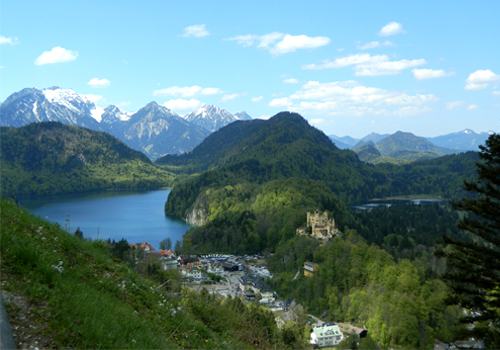Shami Ghosh has a long history with the University of Toronto. In fact, he first became acquainted with Robarts Library before he stepped foot on the St. George campus as a graduate student.
“As a teenager, I read The Name of the Rose, a murder mystery set in a medieval monastery,” says the assistant professor of medieval history at the Centre for Medieval Studies and the Department of History in the Faculty of Arts & Science. “That got me interested in the Middle Ages. Later, I learned that the architecture of that monastery was rumoured to be partly inspired by Robarts Library.”
After earning his bachelor of arts in German from King’s College London in 2003, he studied at Harvard University for a year before enroling at U of T’s Centre for Medieval Studies. He earned his master of arts in 2005 and his PhD just four years later.
I came here as a graduate student because U of T has a reputation of being one of the best places in the English-speaking world for research in medieval studies.
Before returning to U of T in 2016 as a faculty member, Ghosh held a postdoctoral fellowship at the University of Leicester, a junior research fellowship at Magdalen College, Oxford, and a Mellon postdoctoral fellowship at the Pontifical Institute of Mediaeval Studies in Toronto.
“I came here as a graduate student because U of T has a reputation of being one of the best places in the English-speaking world for research in medieval studies,” he says.
“I loved the courses I took, and I was very fortunate to have teachers who were excellent in their scholarship, but also very good as mentors to me. They took an interest in me and advised me on how to format a CV, how to write a cover letter, how to network. That was very helpful.”
As a graduate student, Ghosh took a course on economic history and developed an interest in the origins of capitalism.
“I started to look at the question: where did capitalism come from? And when?
“Then I reframed that question in an even more fundamental way, which is this: in the society in which we now live, almost all of us are dependent on the market to satisfy pretty much all of our needs and desires. Most people don't grow their own food or build their own furniture, but in the long span of history, this is actually a relatively recent development. So my research started to look at when and how this shift from a society of producers to a society of consumers happened.”
He is exploring this shift by examining the evolution of rent — when people stopped paying with goods they produced and started paying with money — but it’s no small undertaking. Ghosh holds a grant from the Social Sciences and Humanities Research Council (SSHRC) and works with a graduate student and postdoctoral researcher on the project.

“I visited archives in Germany and collected and digitized approximately 17,000 pages of documents from the 13th, 14th and 15th centuries, which give evidence of the different kinds of rents,” he says. “We’re now processing all of this so that we have a lot of statistical information about this change from rent in produce to rent in money, which will give us a sense of when this change happened.
Then we want to tie that to different landscape types: in flat lands where they’re mainly producing grain, did this shift happen earlier or later than in areas used for livestock farming where they’re producing dairy or meat?”
Humanities research can help us retain the best of what it means to be human as we enter into economic, technological and environmental conditions that are unprecedented.
Ghosh believes this research is key to understanding contemporary socio-economic systems. “Research on the evolution of capitalism can teach us how we got to where we are and help us see that capitalism was not inevitable, that other ways of economic life can exist, and therefore it can give us hope to come up with ideas on how to do things differently.”
Having already collected his data, Ghosh has been able to continue his research amid the COVID-19 pandemic — but he’s concerned about students whose research has been affected.
“A lot of medieval studies is working with manuscripts that have not been published. Only a small fraction of that material is online, so you have to go to where the manuscript is kept.”
He supervises two PhD students who were planning to work in archives in Germany this year but had to postpone their trips. As students wait for travel restrictions to be lifted, their research is delayed and their enrolment in the PhD program is prolonged.
“COVID-19 has put a strain on everything. My students need to finish their PhD; they've come this far. Prizes for particular achievements, grants for research travel — those things would be very helpful for our students.”
Ghosh says supporting humanities students, research and teaching means supporting a field that “isn’t just important; it’s increasingly fundamental.
“Humanities research is where we try and understand what it means, has meant, and might mean in the future, to be human — and as a corollary to that, to be good. The category 'good' is much debated, but so much of what we call progress — scientific, political, economic — takes place without ethical reflection. Humanities research can help us retain the best of what it means to be human as we enter into economic, technological and environmental conditions that are unprecedented.”

